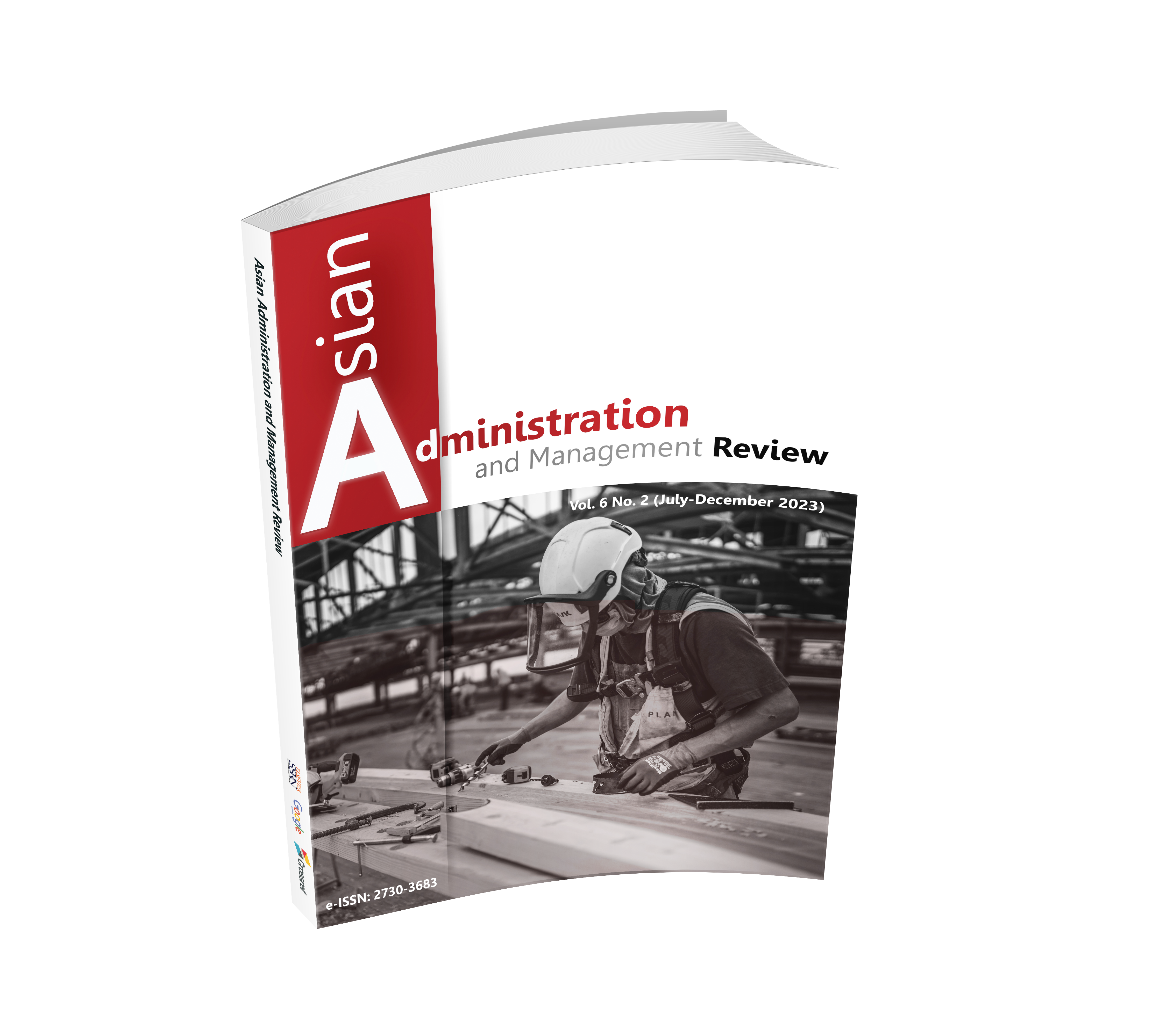NEO TOURISM AND SERVICE INNOVATION AFFECTING THE DECISION-MAKING OF TOURISTS IN CHOOSING THEIR TRAVEL
DOI:
https://doi.org/10.14456/aamr.2023.15Keywords:
Neo Tourism, Service Innovation, Decision-Making in Choosing TravelAbstract
The objective of this research was to investigate the causal variables of neo tourism and service innovation affecting the decision-making of tourists in choosing their travel destinations. The study was conducted with Thai tourists who decided to travel in Chumphon Province, Thailand. The results of multiple regression analysis revealed that neo tourism, which consisted of nature seeking, hygieneaholic, and flexi needed dimensions, affected the decision-making of tourists with statistical significance. Three independent variables could jointly predict 50.5% of the variation in the dependent variable. Additionally, the service innovation, which consisted of information, process, technologies, and environment affected the decision-making of tourists with statistical significance. Four independent variable of service innovation could jointly predict 52.9% of the variation in the dependent variable.
Downloads
References
Chueluecha, S. (2019). The Relationship between Service Innovation and Decision of Using Service of Kasemrad Bangkae Hospital. Master of Business Administration Thesis, Siam University.
Cochran, W. (1977). Sampling Techniques. 3rd ed. New York: John Wiley & Sons.
Cooper, D., & Schindler, P. (2003). Business Research Methods. 8th ed. Massachusetts: McGraw-Hill Irwin.
Department of Tourism. (2019). Guidelines for compliance with measures to relieve business and tourism activities to prevent the spread of Coronavirus Disease 2019 (COVID-19), guidelines for business owners/service providers/service users. Retrieved from www.dot.go.th/storage/17_07_2020/sSSa4XxXKJg5RPAZ93jiZHubOshCbh3EoDzC1sqF.pdf.
Hair, J., Black, W., Babin, B., & Anderson, R. (2010). Multivariate Data Analysis. 7th ed. New Jersey: Pearson Prentice Hall.
Hertog, P. (2000). Knowledge-intensive business services as co-producers of innovation. International Journal of Innovation Management, 4(4), 491-528.
Kotler, P., & Keller, K. (2012). Marketing Management. 14th ed. New Jersey: Pearson Education.
Mahidol University. (2021). NEO TOURISM Unpacking the Insights of Travelers. Nakhon Pathom: Mahidol University.
Ritwatthanavanich, N. (2019). Service Innovation Quality: A Winning Heart Share Strategy to Service Entrepreneurial Success. Asian Administration and Management Review, 2(2), 160-172.
Rovinelli, R., & Hambleton, R. (1977). On the Use of Content Specialists in the Assessment of Criterion-Referenced Test Item Validity. Tijdschrift Voor Onderwijs Research, 2, 49-60.
Tachochalalai, S., & Romprasert, S. (2019). Macroeconomic Perspective - Chinese President Era Affecting Chinese Tourist Demand: Case of Thailand. Asian Administration and Management Review, 2(1), 63-75.
Thongtao, J. (2018). The causal relationship between service innovation, relationship quality and customer loyalty of mobile phone service business providers in Thailand. Doctor of Business Administration Thesis, Siam University.

Downloads
Published
How to Cite
Issue
Section
License
Copyright (c) 2023 Authors

This work is licensed under a Creative Commons Attribution-NonCommercial-NoDerivatives 4.0 International License.











.png)


